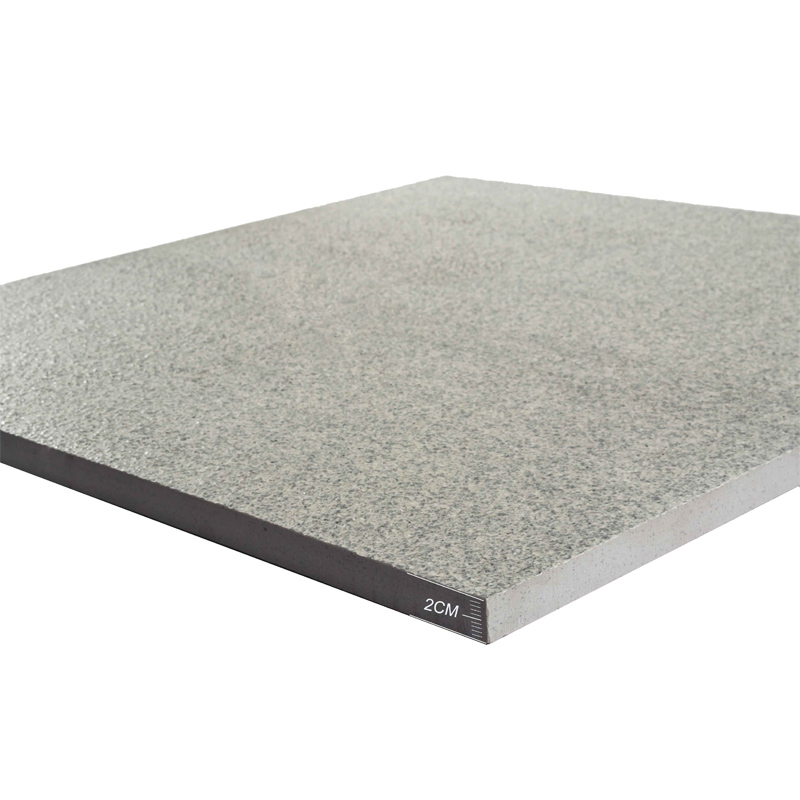Floor tiles are typically between 8mm and 12mm thick. This thickness provides durability and stability for various flooring applications.
Choosing the right thickness for floor tiles is crucial for ensuring long-lasting and durable flooring. The thickness of floor tiles typically ranges from 8mm to 12mm, offering a balance between sturdiness and ease of installation. Understanding the appropriate thickness for different areas of the home, such as kitchens, bathrooms, and living spaces, is essential for making informed decisions when selecting and installing floor tiles.
By considering factors like foot traffic, subfloor condition, and overall design aesthetic, homeowners and designers can confidently choose the most suitable tile thickness for their specific needs.
Tile Thickness Fundamentals
Tile thickness is an important factor to consider when choosing the right tiles for your home renovation or construction project. The thickness of tiles affects the overall durability and longevity of the flooring. In this blog post, we will discuss the fundamentals of tile thickness, including standard thickness variations and the impact of material on thickness.
Standard Thickness Variations
The standard thickness of floor tiles varies depending on the type of tile. The most common thicknesses for ceramic and porcelain tiles are 8mm, 10mm, and 12mm. However, natural stone tiles can range from 7mm to 20mm in thickness. It is important to note that thicker tiles are generally more durable and can withstand heavy foot traffic and wear and tear.
Here is a table showing the standard thickness variations for different types of floor tiles:
| Tile Type | Thickness (mm) |
|---|---|
| Ceramic | 8, 10, 12 |
| Porcelain | 8, 10, 12 |
| Natural Stone | 7-20 |
Impact Of Material On Thickness
The type of material used in the production of tiles also affects their thickness. For instance, ceramic tiles are generally thinner than porcelain tiles because they are less dense. Porcelain tiles, on the other hand, are denser and more durable, which means they are thicker. Natural stone tiles, such as marble or granite, are thicker because they are heavier and require more support.
When choosing the right thickness for your tiles, it is important to consider the type of material and the intended use of the flooring. Thicker tiles are generally more durable and suitable for high traffic areas, while thinner tiles are better suited for areas with less foot traffic.
- Thicker tiles are more durable and can handle heavy foot traffic.
- Thinner tiles are better suited for areas with less foot traffic.
- The type of material used in tiles affects their thickness.

Credit: tiledoctor.com
Comparing Tile Types
When it comes to choosing floor tiles for your home, it’s important to understand the different types available in the market. Each type has its own unique characteristics and benefits. In this section, we will compare ceramic and porcelain tiles, as well as natural stone and glass tiles, helping you make an informed decision for your flooring needs.
Ceramic Vs. Porcelain
Ceramic and porcelain tiles are both popular choices for flooring due to their durability and versatility. However, there are some key differences between the two:
| Ceramic Tiles | Porcelain Tiles | |
|---|---|---|
| Composition | Made from clay and other natural materials | Made from refined clay and fired at higher temperatures |
| Water Absorption | Higher water absorption rate, making them more suitable for indoor use | Lower water absorption rate, making them ideal for both indoor and outdoor applications |
| Strength | Less dense and slightly less durable than porcelain tiles | Denser and more durable, resistant to scratches and stains |
| Cost | Generally more affordable than porcelain tiles | Higher in cost due to their enhanced durability |
Natural Stone And Glass Tiles
If you’re looking for a more luxurious and unique flooring option, natural stone and glass tiles are worth considering:
- Natural Stone Tiles: Made from materials such as marble, granite, or limestone, these tiles offer a timeless and elegant look. They are durable and can withstand heavy traffic areas, but may require regular maintenance to preserve their appearance.
- Glass Tiles: These tiles are known for their stunning visual appeal, adding a touch of sophistication to any space. They are often used as accent tiles or in mosaic patterns. While glass tiles are not as durable as ceramic or porcelain, they are highly resistant to stains and water damage.
By comparing the different tile types, you can choose the one that best suits your needs and preferences. Whether you opt for ceramic or porcelain tiles, or decide to go with the luxurious appeal of natural stone or glass tiles, your flooring will undoubtedly enhance the beauty and functionality of your home.
Influence On Installation
The thickness of floor tiles greatly impacts the installation process, affecting stability and durability. Thicker tiles may require additional adhesive for proper installation and can impact overall floor height and transition areas. It is essential to consider the thickness of floor tiles to ensure a successful and long-lasting installation.
Influence on Installation
When it comes to installing floor tiles, the thickness of the tiles plays a significant role in the overall process. From subfloor requirements to adhesive and grout considerations, understanding the influence of tile thickness is crucial for a successful installation. In this section, we will explore the different aspects that are impacted by the thickness of floor tiles, ensuring a smooth and durable flooring solution.
Subfloor Requirements
The thickness of floor tiles directly affects the subfloor requirements for installation. Different tile thicknesses may require specific subfloor preparations to ensure stability and prevent cracking over time. It is essential to assess the condition of the subfloor and follow the manufacturer’s guidelines regarding the suitable thickness of tiles for a particular subfloor type.
Adhesive and Grout Considerations
Selecting the right adhesive and grout is equally important when working with different tile thicknesses. The thickness of the tile will determine the amount of adhesive needed to achieve proper adhesion and prevent potential issues such as lippage (uneven tile surfaces). Thicker tiles may require a thicker layer of adhesive for proper support and stability.
Additionally, the grout joint width should be considered in relation to the tile thickness. Thicker tiles may require wider grout joints to accommodate any slight variations in tile thickness and ensure a seamless appearance. Conversely, thinner tiles may benefit from narrower grout joints for a more refined look.
Table: Recommended Adhesive and Grout Considerations
Tile Thickness | Adhesive Thickness | Grout Joint Width
——————|————————|———————
3-6 mm | 1.5-2 mm | 1-2 mm
7-9 mm | 2-3 mm | 2-3 mm
10-12 mm | 3-4 mm | 3-4 mm
The above table provides a general guideline for selecting the appropriate adhesive thickness and grout joint width based on the thickness of the floor tiles. However, it is important to refer to the manufacturer’s recommendations for specific products and consult with a professional if needed.
In conclusion, the thickness of floor tiles has a significant influence on the installation process. It affects subfloor requirements, adhesive selection, and grout considerations. By understanding these factors and following the necessary guidelines, you can ensure a successful and long-lasting tile installation that enhances the beauty and functionality of your space.

Credit: www.cerarock.com
Functional Implications
Durability And Wear Resistance
Thicker floor tiles offer enhanced durability and wear resistance, making them ideal for high-traffic areas such as kitchens and hallways. Their ability to withstand heavy foot traffic and resist wear and tear over time makes them a practical choice for long-term use.
Thermal And Sound Insulation
Thicker floor tiles provide improved thermal and sound insulation, creating a more comfortable and quiet indoor environment. They help to maintain consistent room temperatures and reduce noise transmission, enhancing the overall comfort and tranquility of the living space.
Aesthetic And Design Considerations
When choosing floor tiles, the thickness plays a crucial role in the overall aesthetic and design of the space. Visual cohesion and transitioning between different tile types are important aspects to consider when evaluating the thickness of floor tiles.
Visual Cohesion With Tile Thickness
The thickness of floor tiles can significantly impact the visual cohesion of a space. Thicker tiles tend to convey a sense of sturdiness and durability, making them suitable for areas where a robust aesthetic is desired. On the other hand, thinner tiles create a sleek and modern look, often preferred in contemporary designs. It’s essential to consider the existing design elements and the desired atmosphere to ensure that the tile thickness aligns with the overall visual aesthetic.
Transitioning Between Different Tile Types
Transitioning between different tile types, such as ceramic, porcelain, or natural stone, requires careful consideration of the thickness. Uniform tile thickness facilitates a seamless transition between areas, creating a cohesive and harmonious look. However, if transitioning between tiles of varying thickness, it’s important to plan for a smooth and gradual elevation change to ensure a visually pleasing and functional transition.
Choosing The Right Thickness
When it comes to floor tiles, choosing the right thickness is crucial for a successful installation. The thickness of floor tiles can affect their durability, suitability for different spaces, and overall aesthetic appeal. In this section, we will explore the factors to consider when selecting the appropriate thickness for your floor tiles.
Space And Application
The first aspect to consider when choosing the thickness of your floor tiles is the space and application. Different areas in your home or commercial space may have varying requirements based on the amount of foot traffic they receive.
For high-traffic areas such as entryways, hallways, or commercial spaces, it is recommended to opt for thicker tiles. Thicker tiles, typically ranging from 8mm to 10mm, can withstand heavy use and are less prone to cracking or chipping.
In contrast, areas with lighter foot traffic, such as bedrooms or bathrooms, can utilize tiles with a thinner thickness. Tiles ranging from 4mm to 6mm are often suitable for these spaces, providing an adequate balance between durability and cost-effectiveness.
Expert Recommendations
Experts in the flooring industry have provided recommendations on tile thickness based on various factors. These recommendations can serve as a helpful guide when making your decision.
For example, the Tile Council of North America suggests that floor tiles with a thickness of 5/16″ (8mm) or greater are suitable for most residential applications. Additionally, they recommend using a minimum thickness of 3/8″ (10mm) for heavy-duty residential or commercial areas.
Another expert recommendation comes from the National Tile Contractors Association, which advises using a minimum thickness of 1/4″ (6mm) for interior residential floors. They also recommend increasing the thickness to 3/8″ (10mm) for high-traffic areas.
By following these expert recommendations, you can ensure that the thickness of your floor tiles aligns with industry standards and provides the necessary durability for your specific space and application.
Frequently Asked Questions
Q1. What Is The Standard Thickness Of Floor Tiles?
A1. The standard thickness of floor tiles is 8 to 10 millimeters for ceramic tiles, 10 to 12 millimeters for porcelain tiles, and 4 to 5 millimeters for vinyl tiles.
Q2. Can I Use Thicker Floor Tiles For High Traffic Areas?
A2. Yes, using thicker floor tiles for high traffic areas is advisable as it provides more durability and can withstand heavy foot traffic.
Q3. What Are The Advantages Of Thin Floor Tiles?
A3. Thin floor tiles are cheaper, lighter, and easier to install. They can be used for walls as well as floors, making them versatile and cost-effective.
Q4. How Do I Determine The Right Thickness For My Floor Tiles?
A4. The right thickness for floor tiles depends on the type of tile, the area where it will be installed, and the level of foot traffic. Consult with a professional if unsure.
Q5. Are Thicker Tiles Better For Sound Insulation?
A5. Thicker tiles offer better sound insulation as they are more dense and absorb more sound. This is especially useful for areas with high noise levels.
Q6. Can I Install Thin Tiles Over An Existing Floor?
A6. Yes, thin tiles can be installed over an existing floor if it is clean, level, and structurally sound. However, it is recommended to consult with a professional before doing so.
Conclusion
Understanding the thickness of floor tiles is crucial for your renovation projects. The right thickness ensures durability and longevity for your floors. By choosing the correct tile thickness, you can create a beautiful and functional space that will stand the test of time.
Make informed decisions for lasting results.









Leave a Reply